Contents
- Why it’s Important to Learn Italian
- Importance of Italian Language
- Why Learn Italian – Ten Reasons to Learn Italian
- 1 – Italian is very Polite and Elegant People
- 2 – Understand Your Favorite Opera Singers
- 3 – Italian is a Beautiful Language
- 4 – If you Plan to Visit Italy Someday.
- 5 – Italian Food is the Best in the World
- 6 – If your Highly into Art and Fashion
- 7 – If you have a Significant Other that Speaks Italian
- 8 – Academic Reasons to Learn Italian
- 9 – Learn Italian as a Hobby/Love of Learning Languages
- 10 – Understand the Cultural Importance of Italian
- Try Italian Language Tools
- Related
Why it’s Important to Learn Italian
The importance of Italian is spoken by over 80 Million people in Italy and other countries in Europe such as Malta, San Marino and parts of Switzerland, Croatia, Slovenia, and France.
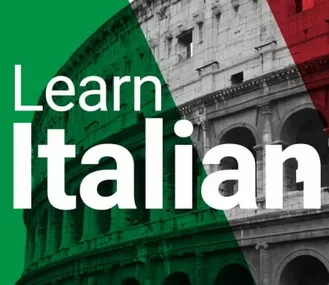
Importance of Italian Language
Quick Italian Language Facts
[icon name=”etsy” class=”fa-3x” unprefixed_class=”middletext”] Language family: Latin Romance language
[icon name=”users” class=”fa-3x” unprefixed_class=”middletext”] Spoken by 80 Million (50m Online Readers)
[icon name=”bars” class=”fa-3x” unprefixed_class=”middletext”] 9th most spoken world language
[icon name=”globe” class=”fa-3x” unprefixed_class=”middletext”] Official Language in 32 Countries
[icon name=”history” class=”fa-3x” unprefixed_class=”middletext”] Origin 2nd Century
[icon name=”file-word-o” class=”fa-3x” unprefixed_class=”middletext”] Approx 1m Words – Only 10k words commonly used.
History of Italian Language
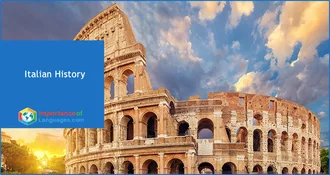
Italian is a Romance language derived from Latin. It slowly evolved from Latin into many dialects. At the end of the Middle Ages, the Tuscan dialect became the most popular version of Italian, owing to the central location of Florence and its thriving economy. Dante, Petrarca, and Boccaccio, who left a long-lasting mark on the Italian language, all came from Tuscany. Italian then became Italy’s official language when the peninsula was unified in the 19th century.
Although the Italian language was used and spoken, it was not standardized until came Dante Alighieri. Dante Alighieri is often referred to as the father of Italian language. He was the most famous Italian writer of all times. He was working on The Divine Comedy(La Divina Commedia) which he completed in 1320, a year before his death. Most writers and poets used Latin for their work but Dante chose to write his finest work in Italian (known as Tuscan dialect at that time) that set its standard in high culture
Countries with Official Italian language
- Italy
- France
- Switzerland
- Vatican City
- San Marino
- Malta
Italian Dialects
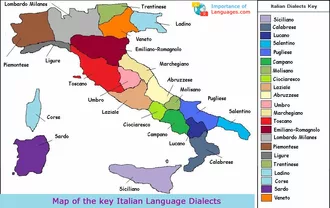
The dialects of Italy are each their own independent languages. Italy was made up of several independent states, each with their own regional language
Dialects of Italian are regional varieties (Tuscan, Central Italian) which are closely related to Standard Italian, while the terms Dialects of Italy is suggested for those idioms, such as Neapolitan, Sicilian, and Gallo-Italian languages which show considerable differences in grammar, syntax and vocabulary.
Italian has significantly influenced English and other Western languages.
Common English words of Italian origin include:
- Broccoli
- ciao
- cappuccino
- pizza
- piano
- Fiasco
- Propaganda
- Flu
- Quarantine
- Lottery
- Zucchini
- Maestro
- Orchestra
Most native speakers of Italian are bilingual of both standardized Italian and their regional dialect. Italian is also the primary language of Vatican City. Adopted after the unification of Italy sealing the importance of Italian language.
Like many languages in Europe, Italian is a romance language that has the most characteristics in common with Latin.
Italian derives from the Indo-European language family, which includes English, in some ways it is easier to speak than English since most words are pronounced exactly as they appear. People naturally assume that their first language is very simple to learn and others languages are very difficult to learn and use in their everyday life, but it is not so. The importance of Italian is beneficial regardless if you do it for fun or for your career or even just for personal travel.
Importance of Italian Language in Italian culture

Italian culture is everywhere you look, you might even be eating Italian food while you are reading this or wearing clothes by an Italian designer. When it comes to food and fashion the Importance of Italian culture and language cannot be surpassed. No question that Italian cuisine is considered the best in the world to some people.
Italy has been Europe’s main trendsetters ever since the early 11th-16th centuries so it’s no surprise that Italy holds the Fashion capital of the world today, Milan, holds fashion shows year round and many of the top designers live in Italy, such names as Gucci, Armani, Emilio Pucci, Valentino, Prada, Dolce & Gabbana, Ferragamo, Roberto Cavalli, Trussardi, Versace, Krizia, Etro, Laura Biagiotti, just to name the tip of the iceberg of fashion.
Importance of Italian Language when visiting Italy

Italy is one of the biggest places for tourism, being the fourth highest overall earner, and the fifth most visited country in the world. Plenty of reasons to visit Italy for its amazing cuisine, history, fashion, art, and culture.
Biggest attractions for most people are visiting the city of Rome, the Colosseum, and Vatican Museums.
Millions of international flock to Milan every year for the fashion shows. Other famous locations in Italy are Bologna, Florence, Genoa, Naples, Pisa, Turin, and Venice. Sites like the Leaning Tower of Pisa and the Vatican are also major tourist attractions.
The importance of the Italian language and culture have an unmistakable impact on the world.
Importance of Italian Language in History

The importance of Italian is present today in Rome. Where the Roman empire used to reside. Thousands of books can be found in Italian about Roman history, which makes amazing reading for academic or personal interest reasons.
No matter your own personal beliefs, Italy also holds the biggest Catholic church in the world, the Vatican. You can see priests and nuns all over the place, and bishops and cardinals in Rome. Before Italy had become unified in 1861, it was a very divided country, with many smaller states that all had their own language, currency, and own culture. Becoming unified under a single official language helped ceased the division and Solidify Italy what it is today.
Importance of Italian Language in Business

Italy is one of the world’s top ten economies after building steadily after the second world war from mainly exporting goods. Germany, France, the United States, and other European countries are the biggest importers of Italian goods such as industrial products, cars, and car parts, fashion, as well as food.
Much Italian business does business outside of Italy only know Italian or at least very little English. Italy is also focused on building strong trade agreements with China and India. Since the global slump, Italy exporting took a slight dive but it is expected that the strength of the Italian economy will succeed and push it back into being a world leader in exporting.
All languages grow and evolve over time and Italian is no exception. To truly understand the importance of the Italian language you need to learn the language yourself so you can receive the full benefit of this amazing language.
Talk about the Importance of language in action!
Why Learn Italian – Ten Reasons to Learn Italian
You probably already have your own reasons to learn Italian but in case you don’t have one already or still looking for more reasons to get motivated to learn Italian. This article should help you answer the question “why learn Italian?”

1 – Italian is very Polite and Elegant People
Many people from all over the world consider Italians to be very polite and elegant.
2 – Understand Your Favorite Opera Singers
If you are a fan of the opera and want to understand your favourite opera singers when they belt out those really high notes.
3 – Italian is a Beautiful Language
Italian as a romance language is rated as one of the most beautiful languages in the world
4 – If you Plan to Visit Italy Someday.
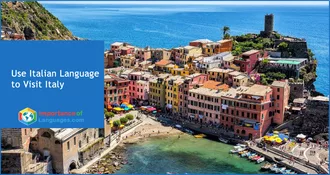
Traveling in Italy is intensely pleasurable, with about everything you can dream of the richest historical sites in Europe, with full roman ghost towns you can visit, cathedrals, circuses, monasteries, paintings, sculptures. And for the present, one of the most attractive cooking dishes in the world, beautiful and elegant people, world-class designers.
The main problem when traveling in Italy seems either to be money or that you must go back.
5 – Italian Food is the Best in the World

No other language is as deeply ingrained when it comes to food than Italian. No other language has as close to as many words for food or for describing food. Many people around the world say Italian food is one of the most attractive and tasteful cooking in the world.
6 – If your Highly into Art and Fashion
Milan is the fashion capital of the world so if you like fashion, supermodels, world-class designers.
7 – If you have a Significant Other that Speaks Italian

Want to learn Italian as it’s your partner’s native language and you want to surprise them or improve communication between you. Or planning a romantic date with an Italian theme.
8 – Academic Reasons to Learn Italian

Because of the higher demand for people speaking Italian, many of the world’s governments and agencies have been offering scholarships and other opportunities for individuals who are interested in Italian studies and learning Italian
9 – Learn Italian as a Hobby/Love of Learning Languages

Maybe you are just one of those people that just enjoy learning languages for the fun of it! Once you’ve mastered the urge to learn more becomes pretty strong. Contrary to popular opinion, not much confusion happens between languages.
10 – Understand the Cultural Importance of Italian
Maybe you fell in love with the rolling hills of Tuscany on your first visit to il bel paese—or maybe you fell in love with an Italian! Maybe your grandparents emigrated from Italy, so you want to investigate your family history. Perhaps you’re an aspiring musician who wants to learn what adagio, allegro, and andante mean or an opera singer who wants to improve her pronunciation.
Try Italian Language Tools


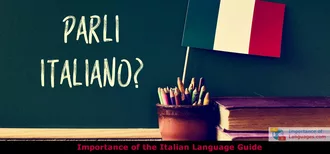
Wow😱😱it’s very true,I wish I could learn more in Italian language ,I really like it and I love it…❤️❤️❤️